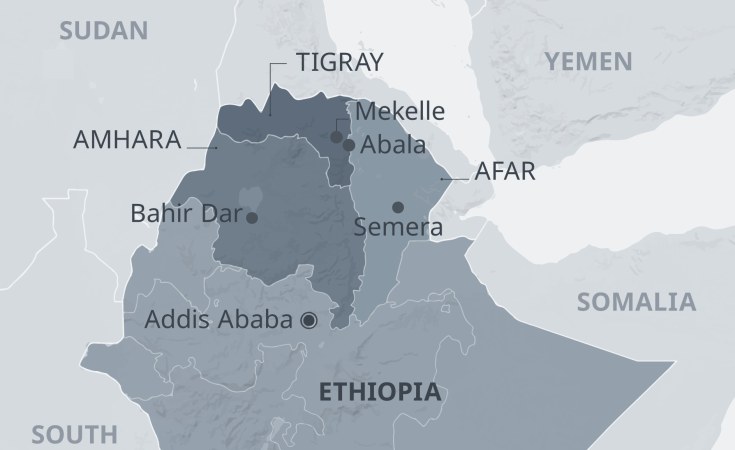Addis Abeba — Authorities in the Tigray region are reporting a rising number of deaths as they work hard to finalize an investigation into food aid theft that led to suspension of humanitarian aid in the region.
Teklay Gebremedhin, interim administrator of Northwestern Tigray zone, told Addis Standard that over 270 people have died of hunger in the zone over the past three months. About 100 deaths were reported from IDP centers in Shire, Shiraro, Asgede, Endabaguna, and Adi Daero, whereas, the remaining deaths were registered in local villages in the zone according to Teklay.
"Things are getting worse than before, people are dying every day", Teklay noted, adding that there are thousands of fresh arrivals of IDPs in Endabaguna who also need urgent food aid.
Furthermore, 15 people have died of hunger in Irob and Hawzen woredas/districts of the Eastern Tigray Zone, out of whom two are children, according to Shushay Meresa, interim administrator of the zone.
"Locals, especially the IDPs are in bad condition, they are begging everywhere with their children, and it is heartbreaking," said Shushay.
Continued occupation of parts of the zone including a significant part of the Irob district by Eritrean forces made it difficult to determine the overall humanitarian crisis, Shushay said, noting that the 15 deaths were reported from areas under the Tigray interim administration.
About 250,000 IDPs and 1.3 million residents in the Eastern Tigray zone, and half a million IDPs and one million residents in the Northwestern zone need humanitarian aid, according to the local officials.
Even though the suspension of humanitarian aid operations was officially announced in early May, officials claim that the food aid distribution was interrupted for a longer period.
"It's been five months without humanitarian aid, there was not enough aid even before the suspension," said Gebrehiwot G/egzabher (PhD), Commissioner of the Disaster Risk Management Commission of Tigray who is also member of the committee established to investigate the food theft.
"Hunger and subsequent deaths of people are getting worse from time to time due to the suspension of humanitarian aid," Gebrehiwot noted, adding that "the region is working hard to finalize the investigation in a short period of time".
Hundreds of thousands of IDPs in the Tigray region have staged massive protests in major cities of the region last week, calling on NGOs and the government to facilitate resumption of suspended humanitarian aid and their safe return to home.
The IDPs demanded the investigation of the theft of humanitarian aid to be concluded without further delay and that the culprits be held accountable.
WFP said in a statement on 03 May, that it "has paused food distributions in Tigray, which will not resume until WFP can ensure that vital aid will reach its intended recipients". USAID, the US Agency for International Development has also announced on the same day that it has made "the difficult decision to pause all USAID-supported food assistance in the Tigray region until further notice".
Despite the suspension, the UN Office for Coordination of Humanitarian Affairs (OCHA) said in a report issued on 25 May that aid organizations in Tigray are working "closely with actors providing smaller-scale, targeted food assistance amidst a pause in food distribution".
On 10 May, Addis Standard reported that at least six individuals have reportedly perished only in one week due to hunger-related health complications, while 421 households are facing risks in the Amdi Weyane, Debre Hayla Kebele, Samre Woreda, a mere 40 kilometers from the capital Mekele, following the suspension of humanitarian aid to Tigray region.


